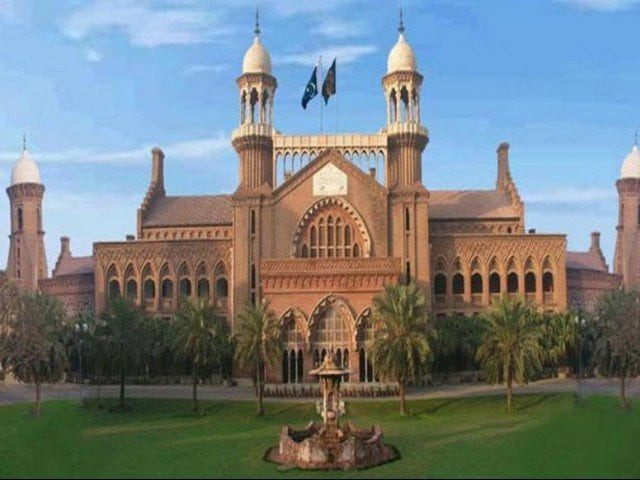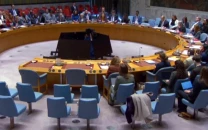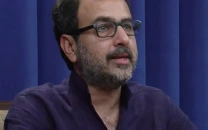LHC points to several defects in blasphemy case
Judgment expresses dismay that TT Singh judge decided case against Christian couple in slipshod manner

The Lahore High Court (LHC) has issued its detailed judgment on the appeal of a Christian couple, who were acquitted of blasphemy charges through a summary order earlier this month after spending eight years in jail.
In the judgment, the court has expressed dismay that the additional sessions judge decided the case in a “slipshod manner”. It set aside the Christian couple’s conviction on the grounds of delay in registration of FIR, non-fulfilment of the requirements of confessional statement and not-establishment of motive, etc.
On April 4, 2014, an additional district and sessions judge in Toba Tek Singh had awarded death sentence and a fine of Rs100,000 each to Shagufta Kausar and Shafqat Masih under Section 295-C of the Pakistan Penal Code (PPC), read with Section 34, for sending blasphemous messages on the phone.
An LHC division bench, comprising Justice Shahbaz Ali Rizvi and Justice Tariq Saleem Sheikh, heard the appeal for three straight days and on June 3. The bench allowed the appeal, saying that the prosecution had failed to establish the case against the couple beyond doubt.
“In the instant case, on reappraisal of evidence, we have come to an ineluctable conclusion that the prosecution has failed to establish the charge against the appellants (Christian couple),” read the 25-page judgment, authored by Justice Sheikh.
“We are dismayed that the learned Additional Sessions Judge has decided the case in a slipshod manner. We allow this appeal and set aside the impugned judgment dated 4.4.2014. The appellants are acquitted of the charge,” read the judgment.
The court observed that the incident was reported to the police with inordinate delay. According to the prosecution, the complainant Muhammad Hussain received the blasphemous SMS on July 18, 2013 but he lodged the FIR two days later and there was no explanation regarding the delay, it added.
Regarding motive of offence, the judgment said that the prosecution claimed that it was a stratagem to get visa to Europe.
However, there was not a whit of evidence to substantiate that contention except Shafqat’s statement before investigating officer which had already been held as inadmissible.
The court said that there was nothing on record to suggest that couple applied for a Europe visa, which had been refused. Even otherwise, the ruling said, “it does not appeal to reason that a person would not only put his own life and liberty at risk” but his entire community for it.
“Remember when the alleged incident took place, the memories of 2009 happening were still fresh in which 77 houses were burnt and at least seven people were killed when a mob attacked the neighbourhood on a rumour that a copy of Holy Quran had been desecrated,” the judgment added.
Though it was well-settled law that the prosecution is not required to establish the motive in every case, the judgment said, but if one was alleged then it must be proved and the court might draw adverse influence if it failed.
The court also pointed out several legal defects in the recording of confession statement of accused Shafqat. It said that there was nothing on record to establish that the magistrate asked Shafqat whether he would consult an advocate before recording the confession statement.
“The presumption would be that he did not make such inquiry and violated fundamental right. In the circumstances, the confession statement is vitiated,” the order said. It also noted that confession statement was recorded in English but Shafqat was semi-illiterate and could not understand English.
The court also said that the magistrate gave 15 to 20 minutes to Shafqat to reconsider his decision to make the confession statement when the police produced him. However, the record established that he was in custody of the police during the proceedings and even handcuffs on him were not removed.
The judgment said that police officer himself admitted that when he reached the Gojra police station, there was a crowd of villagers and the police officials. Many people also gathered during the investigation and raid at the appellants’ house.
They were vulnerable and must have felt threatened in this situation, the court noted. The court should determine as whether confession statement was voluntary and if so whether it was true and trustworthy.
“If the first condition is not satisfied, it must be rejected. In such cases the question of applying the second test does not arise,” the judgment stressed. The court also said that in criminal cases, there was a great responsibility on the courts to determine as whether confession was voluntary and true.


















COMMENTS
Comments are moderated and generally will be posted if they are on-topic and not abusive.
For more information, please see our Comments FAQ